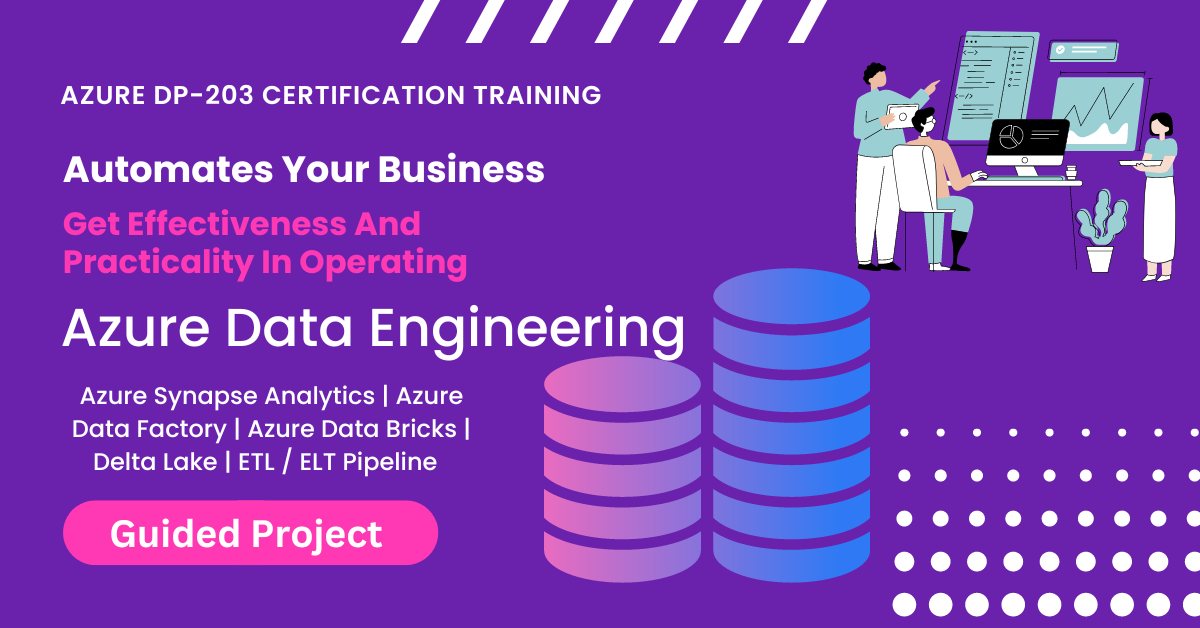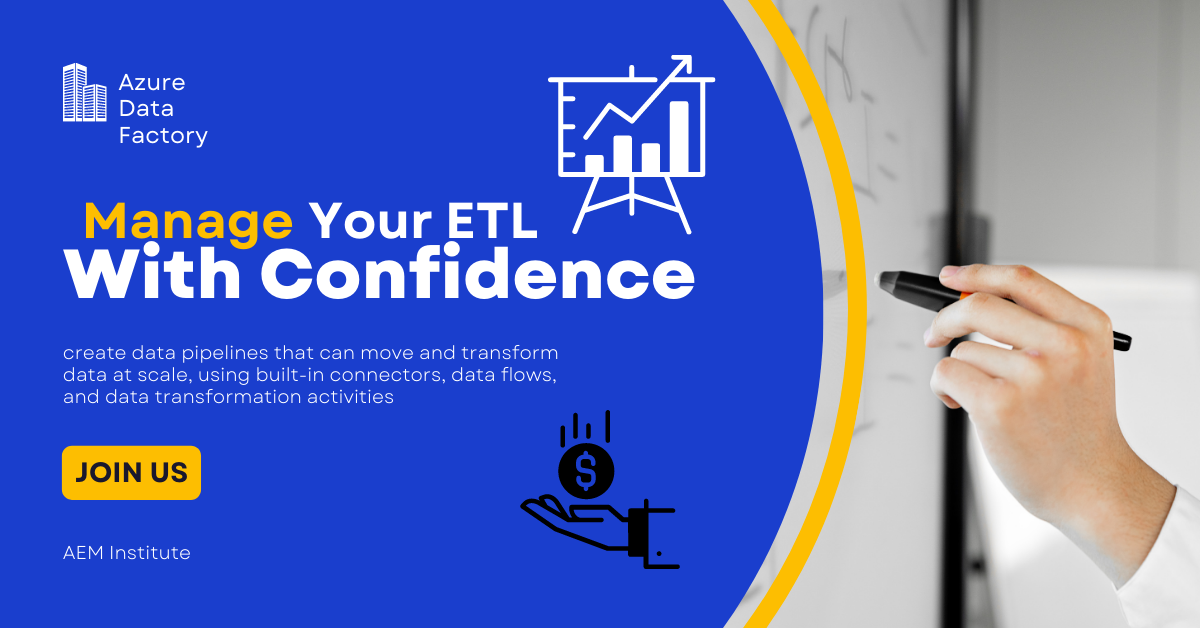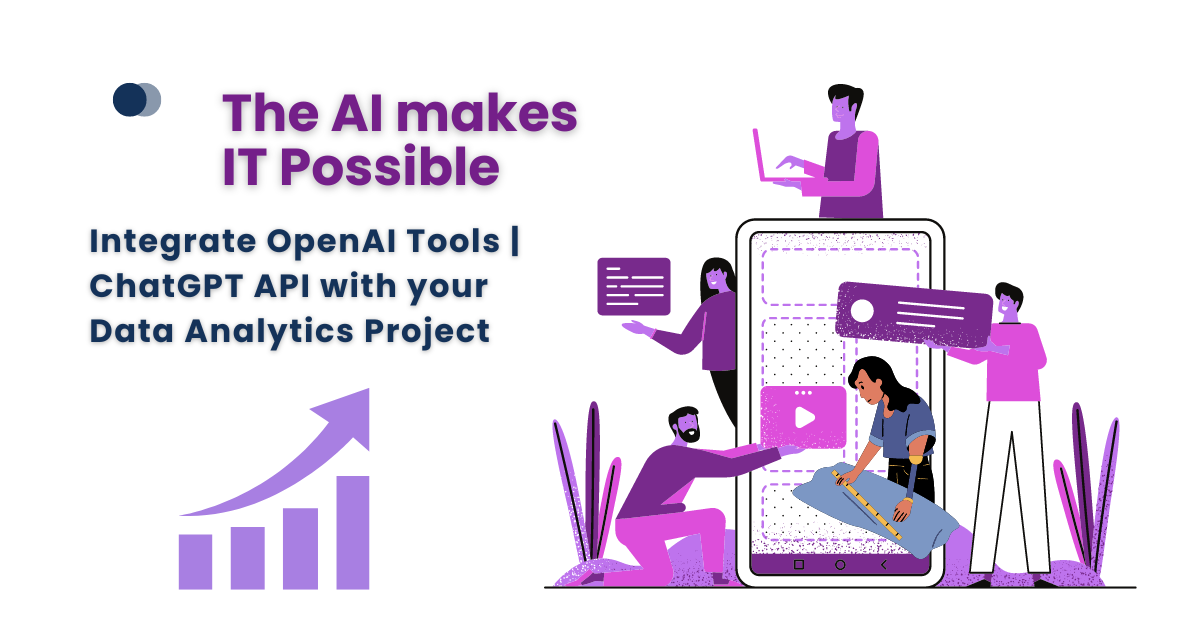Azure Data Engineer Training in Kolkata for Microsoft Azure Cloud ETL Pipeline Automation Course
AEM Institute provide the best Azure Data Engineer Training in Kolkata for freshers and working professionlas. We offer lowest Training fees INR 19,950 for Azure Data Engineer Course in Kolkata which includes free exam preparation materials for Microsoft Azure Cloud ETL Pipeline Automation, Resume Rewriting Services and Interview Materials for Azure Data Engineer Jobs.
Azure Data Engineer Microsoft Azure Cloud ETL Pipeline Automation Course Introduction
Azure Data Engineer Training in kolkata for Microsoft Azure Cloud ETL Pipeline Automation Training helps a candidate to get hands on knowledge how to manage and analyse BigData in Azure cloud platform.In todays world of huge data driven decission making process it is providing new opportunities for business to explore. You will learn the various data platform technologies Like Azure Data Factory, Azure Synapse Analytics, Azure Data Bricks with data analytics pipelines for ETL process. In Azure Data Engineer Training you will learn how to work with Azure Data Factory pipelines without writing code and build ETL ELT pipelines. You have to do labs with Dedicated SQL pool to manage and store data for future data analytics requirements with pyspark.
AEM is the best Azure Data Engineering training institute for freshers and working professional to prepare for Azure Data Engineer Associate Microsoft Azure Cloud ETL Pipeline Automation. We offer training in kolkata, Bangalore, Pune, Hyderabad, Delhi, Gurgaon. We have our Data Analytics Students working in reputed industries in national and international level. Our Alumni secured 7.2L to 18.5L PA Salary Packages with 3 to 8 years of Working Experience as a Data Engineer having proper IT education background.

AEM is the best Azure Data Engineering training institute for freshers and working professional to prepare for Azure Data Engineer Associate Microsoft Azure Cloud ETL Pipeline Automation. We offer training in kolkata, Bangalore, Pune, Hyderabad, Delhi, Gurgaon. We have our Data Analytics Students working in reputed industries in national and international level.
What you will Learn in Azure Data Engineer Training in Kolkata?
Our Students are working globally after completing Azure Data Engineer Training in Kolkata Online
RedHat | TCS | Wipro | CTS | Accenture | Deloitte | Amazon | PWC | Ericsson and many more.....
Related Data Science Courses in Kolkata
Azure Data Engineer Course Details:
- Design an Azure Data Lake solution
- Recommend file types for storage
- Recommend file types for analytical queries
- Design for efficient querying
- Design for data pruning
- Design a folder structure that represents the levels of data transformation
- Design a distribution strategy
- Design a data archiving solution
- design a partition strategy for files
- design a partition strategy for analytical workloads
- design a partition strategy for efficiency/performance
- design a partition strategy for Azure Synapse Analytics
- identify when partitioning is needed in Azure Data Lake Storage Gen2
- design star schemas
- design slowly changing dimensions
- design a dimensional hierarchy
- design a solution for temporal data
- design for incremental loading
- design analytical stores
- design metastores in Azure Synapse Analytics and Azure Databricks
- implement compression
- implement partitioning
- implement sharding
- implement different table geometries with Azure Synapse Analytics pools
- implement data redundancy
- implement distributions
- implement data archiving
- build a temporal data solution
- build a slowly changing dimension
- build a logical folder structure
- build external tables
- implement file and folder structures for efficient querying and data pruning
- transform data by using Apache Spark
- transform data by using Transact-SQL
- transform data by using Data Factory
- transform data by using Azure Synapse Pipelines
- transform data by using Stream Analytics
- cleanse data
- split data
- shred JSON
- encode and decode data
- configure error handling for the transformation
- normalize and denormalize values
- transform data by using Scala
- perform data exploratory analysis
- develop batch processing solutions by using Data Factory, Data Lake, Spark, Azure
- Synapse Pipelines, PolyBase, and Azure Databricks
- create data pipelines
- design and implement incremental data loads
- design and develop slowly changing dimensions
- handle security and compliance requirements
- scale resources
- configure the batch size
- design and create tests for data pipelines
- integrate Jupyter/IPython notebooks into a data pipeline
- handle duplicate data
- handle missing data
- handle late-arriving data
- upsert data
- regress to a previous state
- design and configure exception handling
- configure batch retention
- design a batch processing solution
- debug Spark jobs by using the Spark UI
- develop a stream processing solution by using Stream Analytics, Azure Databricks, and Azure Event Hubs
- process data by using Spark structured streaming
- monitor for performance and functional regressions
- design and create windowed aggregates
- handle schema drift
- process time series data
- process across partitions
- process within one partition
- configure checkpoints/watermarking during processing
- scale resources
- design and create tests for data pipelines
- optimize pipelines for analytical or transactional purposes
- handle interruptions
- design and configure exception handling
- upsert data
- replay archived stream data
- design a stream processing solution
- trigger batches
- handle failed batch loads
- validate batch loads
- manage data pipelines in Data Factory/Synapse Pipelines
- schedule data pipelines in Data Factory/Synapse Pipelines
- implement version control for pipeline artifacts
- manage Spark jobs in a pipeline
- design data encryption for data at rest and in transit
- design a data auditing strategy
- design a data masking strategy
- design for data privacy
- design a data retention policy
- design to purge data based on business requirements
- design Azure role-based access control (Azure RBAC) and POSIX-like Access Control List
- (ACL) for Data Lake Storage Gen2
- design row-level and column-level security
- implement data masking
- encrypt data at rest and in motion
- implement row-level and column-level security
- implement Azure RBAC
- implement POSIX-like ACLs for Data Lake Storage Gen2
- implement a data retention policy
- implement a data auditing strategy
- manage identities, keys, and secrets across different data platform technologies
- implement secure endpoints (private and public)
- implement resource tokens in Azure Databricks
- load a DataFrame with sensitive information
- write encrypted data to tables or Parquet files
- manage sensitive information
- implement logging used by Azure Monitor
- configure monitoring services
- measure performance of data movement
- monitor and update statistics about data across a system
- monitor data pipeline performance
- measure query performance
- monitor cluster performance
- understand custom logging options
- schedule and monitor pipeline tests
- interpret Azure Monitor metrics and logs
- interpret a Spark directed acyclic graph (DAG)
- Optimize and troubleshoot data storage and data processing
- Data Analytics Project on Azure for Streaming data processing
- Microsoft Azure ETL Pipeline Automation Project

What you will get in Microsoft Azure Cloud ETL Pipeline Automation Training?
AZURE Data Engineer Training Upcoming Class Schedule in kolkata, Bangalore, Pune, Hyderabad, Delhi, Mumbai, Chennai, Bhubaneswar, Guwahati, Agartala, Patna AEM:
| Start Date | Class Duration | Timing | Course Fees |
|---|---|---|
| 6th September 2025 | Four Months | 10am-1pm [WeekEnd] | INR 19,950/- |
| 9th September 2025 | Four Months | 6:30pm-8:30pm [Tue & Thu] | INR 19,950/- |
| 20th September 2025 | Four Months | 1pm-4pm [WeekEnd] | INR 19,950/- |
| 27th September 2025 | Four Months | 5pm-8pm [WeekEnd] | INR 19,950/- |
| 6th October 2025 | Four Months | 9pm-10:30pm [Mon & Fri] | INR 19,950/- |
| 18th October 2025 | Four Months | 1pm-4pm [WeekEnd] | INR 19,950/- |
| 25th October 2025 | Four Months | 10am-1pm [WeekEnd] | INR 19,950/- |
| 4th November 2025 | Four Months | 6:30pm-8:30pm [Tue & Thu] | INR 19,950/- |
| 15th November 2025 | Four Months | 5pm-8pm [WeekEnd] | INR 19,950/- |
| 1st December 2025 | Four Months | 9pm-10:30pm [Mon & Fri] | INR 19,950/- |
| 13th December 2025 | Four Months | 1pm-4pm [WeekEnd] | INR 19,950/- |
| 20th December 2025 | Four Months | 10am-1pm [WeekEnd] | INR 19,950/- |

Get Azure Data Factory Training in Kolkata:
Azure Data Factory is a cloud-based data integration service that allows users to create, schedule, and manage data pipelines. Here are some use cases for Azure Data Factory:
- Data Migration: Azure Data Factory can be used to migrate data from on-premises data sources to cloud-based data stores, such as Azure Blob Storage, Azure Data Lake Storage, or Azure SQL Database. The service provides pre-built connectors for popular data sources, and users can create custom connectors as well.
- Data Warehousing: Azure Data Factory can be used to extract data from multiple sources, transform it, and load it into a data warehouse such as Azure Synapse Analytics. The service supports a variety of data transformation techniques, including mapping, filtering, sorting, aggregating, and joining.
- Big Data Processing: Azure Data Factory can be used to process large volumes of data using technologies such as Apache Hadoop, Apache Spark, and Azure Databricks. The service provides built-in support for these technologies, and users can create custom activities to perform custom processing.
- Real-time Data Integration: Azure Data Factory can be used to integrate real-time data from sources such as event hubs, message queues, and streaming analytics services. The service supports a variety of data ingestion techniques, including batching, triggering, and polling.
- Hybrid Data Integration: Azure Data Factory can be used to integrate data across on-premises and cloud-based environments. The service provides connectors for on-premises data sources such as SQL Server, Oracle, and SAP, and supports hybrid data movement between these sources and cloud-based data stores.
What are the Benefits of Learning Azure Data Engineer Certification DP-203?
Azure Data Engineer Certification is a valuable certification for professionals who work with data on the Azure platform. The certification validates a candidate's skills in designing, implementing, and maintaining data solutions on Azure. Here are five benefits of earning an Azure Data Engineer Certification:- Recognition and Credibility: Achieving an Azure Data Engineer Certification demonstrates that you have the necessary skills and expertise to work with data on the Azure platform. It serves as proof of your technical competence and helps you gain credibility among your peers and potential employers.
- Career Advancement: Earning an Azure Data Engineer Certification can help you advance your career in the field of data engineering. As organizations increasingly rely on cloud-based solutions, there is a growing demand for professionals with expertise in implementing and maintaining data solutions on Azure.
- Higher Earnings: Certified professionals generally earn more than their non-certified counterparts. According to a survey by Global Knowledge, certified professionals in the US earn an average of 14% more than non-certified professionals.
- Enhanced Skillset: Preparing for the Azure Data Engineer Certification requires a deep understanding of the Azure platform and its data services. The certification process helps you develop a strong foundation in Azure data engineering and enhances your skillset.
- Access to Community and Resources: As a certified Azure Data Engineer, you will have access to a community of peers and resources that can help you stay up-to-date with the latest developments in the field of data engineering. You can also participate in forums and events to network with other professionals and learn from their experiences.

